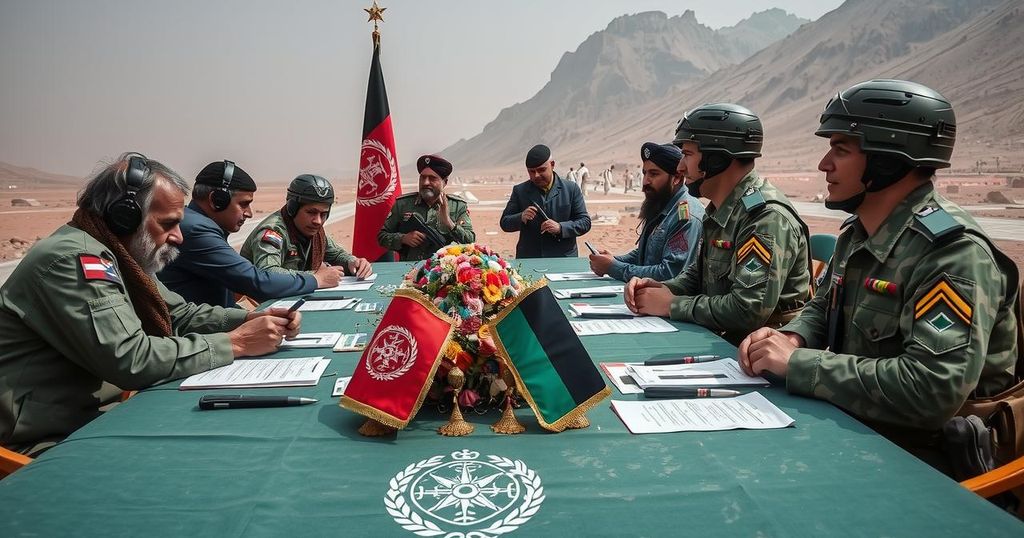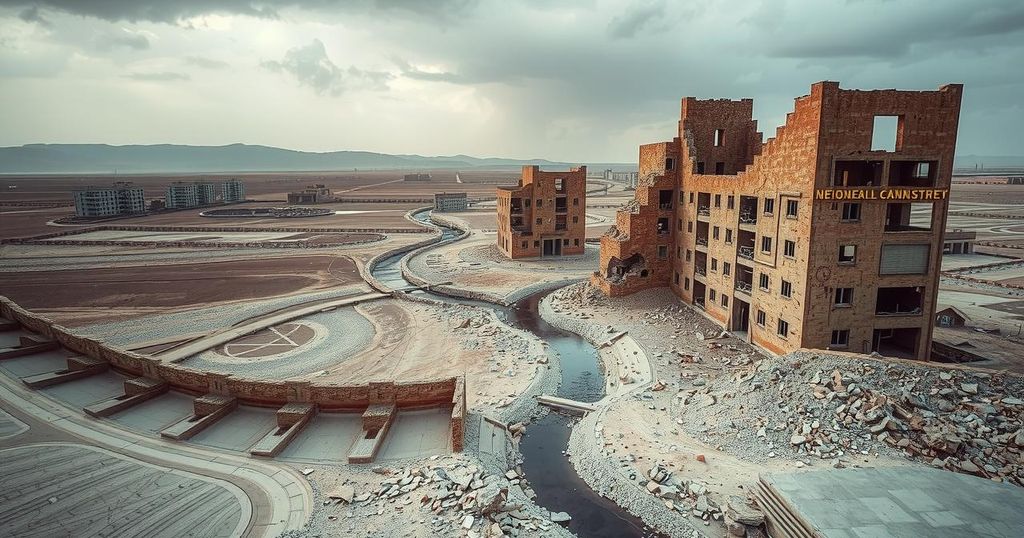Conflicts
AFGHAN TALIBAN, AFGHANISTAN, AHMAD MASSOUD, AHMAD SHAH MASSOUD, AL, AL - QAEDA, AM, AMRULLAH SALEH, ARMY, ASIA, COUNTERTERRORISM, EUROPE, IRAN, ISI, MILITARY, NATIONAL RESISTANCE FRONT, NRF, PAKISTAN ARMY, PANJSHIR, QAEDA, SECURITY, TAJIKISTAN, TALIBAN, TE, TEHREEK - E - TALIBAN PAKISTAN, TERRORISM, TTP
Omar El-Sharif
Pakistan Army’s Alleged Strategy to Ignite Civil War in Afghanistan
Recent reports indicate that the Pakistan Army is allegedly plotting to instigate a civil war in Afghanistan, coinciding with ISI chief Lieutenant General Asim Malik’s visit to Tajikistan for discussions with anti-Taliban leaders. Pakistan’s ongoing support for the NRF and military actions against the TTP reflect a strategy aimed at undermining Taliban control amidst rising tensions along the border between Pakistan and Afghanistan.
Amidst increasing tensions with the Taliban in Afghanistan, the Pakistan Army is reportedly strategizing to instigate a civil war in Afghanistan. This apprehension grew following an unexpected visit by ISI chief Lieutenant General Asim Malik to Tajikistan, where he met with President Emomali Rahmon, a known adversary of the Taliban. Defense analysts have suggested that the purpose of this visit was to forge connections with anti-Taliban leaders residing in Tajikistan who aim to remove the Taliban from power.
Pakistan is intensifying its efforts to unify anti-Taliban factions across neighboring regions, including Iran, Tajikistan, and Europe, with the objective of undermining the Taliban regime. The National Resistance Front (NRF), headed by Amrullah Saleh and Ahmad Massoud—who have taken refuge in Tajikistan following the Taliban’s takeover—has emerged as a particular focus of Pakistani support. Although Pakistan historically opposed Ahmad Massoud, it now appears to be seeking cooperation with him to challenge the Taliban’s hold.
Furthermore, sources indicate that the Pakistan Army intends to escalate airstrikes against Tehreek-e-Taliban Pakistan (TTP) militants operating in Afghanistan. This tactic aims to engage the Taliban on multiple fronts, thus compelling them to enter negotiations. Analysts contend that the NRF is reliant on financial and logistical support from Pakistan to effectively combat the Taliban.
The Tajikistan government has been vocally resistant to the Taliban’s rule in Afghanistan since the group regained control in 2021. President Rahmon has firmly stated that the establishment of a new government in Kabul should reflect the representation of all ethnic and political groups, including the Tajiks. Recent hostilities have exacerbated the already fraught relationship between Pakistan and Afghanistan, with fears of a full-scale conflict looming.
The geopolitical landscape in South Asia is substantially impacted by Pakistan’s maneuvers involving the Afghan Taliban and anti-Taliban factions. Following the Taliban’s return to power in Afghanistan in 2021, neighboring countries, particularly Tajikistan, have expressed considerable apprehension regarding the implications for regional stability and security. The National Resistance Front, consisting of former Afghan officials and military leaders, symbolizes the ongoing resistance against the Taliban, drawing significant support from various regional actors. Increasingly, tensions between Pakistan and the Afghan Taliban have escalated, raising concerns about potential military confrontations along their shared border.
In conclusion, the escalating tensions between Pakistan and Afghanistan, particularly the Taliban, are indicative of a complex geopolitical struggle for influence in the region. Pakistan’s strategy to motivate anti-Taliban factions, alongside its military actions against the TTP, suggests a multifaceted approach to confront both immediate and long-term threats. Observers remain wary that these developments could lead to further conflict, destabilizing not only Afghanistan but potentially affecting neighboring regions as well.
Original Source: www.india.com








Post Comment